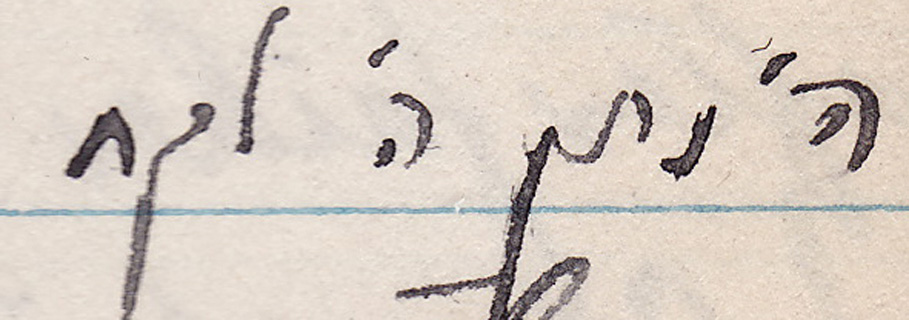
2nd day of Shiva
Oh my beloved father  is gone.
is gone.
Never again will I see that patriar-
chal figure which was my father, as
I had hoped.
God called him but I shall meet
him in Heaven when my time comes.
I shall observe the teachings
that my father taught me. But how
he suffered for his children, what
a fight for his very existence he
put up although a cripple in
order to bring up his children in
the most proper way.
May the Allmighty give me the
strength to devote my all to keep
my mother as comfortable as can
possibly be. Among those [that] called today
to offer consolation were Aunt Golde
Cousins Herman Dunst & wife H. Breindel
Shapiro & Jack Zichlinsky of the camp, Pregev
of the shop and others.
————
Matt’s Notes
Papa’s father was a teacher at the Torah Talmud (religious school) in Sniatyn. This would not have made him a wealthy man, but he was undoubtedly an intelligent, authoritative and admired figure. Papa refers to him as a “cripple” because he had a withered arm, and though we’re note sure why I wonder if was a symptom of a more systemic disease that turned his life into a “fight for his very existence.” Even if it wasn’t, I’m sure Papa, who undoubtedly grew up in close quarters with his father and watched him negotiate daily tasks like dressing, eating, writing, and putting on tefillin (ornaments that religious Jewish men lace around their arms and heads during morning prayers) must have seen his struggles as relentless and heroic.
Note that Papa uses an abbreviation of the Hebrew expression Olam Haba in the first line of this entry:

Olam Haba literally means “the world to come,” and Papa uses it here as another way to say “I’ll meet him in heaven.” Later in the entry, he writes the expression Hashem natan Hashem lakach, which means “God gives, God takes away”:

——————-

—————–
References:
- More on the expression Olam Haba from Judaism 101